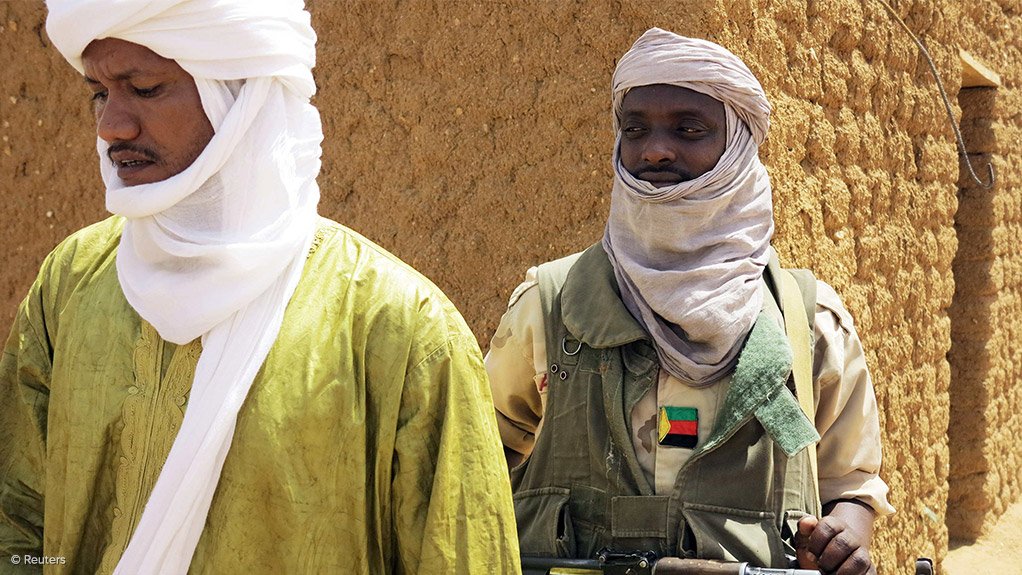Mali's government signed up to a preliminary peace proposal on Sunday meant to end fighting with northern separatists, but the Tuareg-led rebels demanded more time before agreeing to any accord.
The United Nations-brokered deal aimed to tackle decades of uprisings in northern Mali, where Western and regional powers worry Islamist militants could return two years after a French military intervention drove them out.
Recent fighting on the ground and differences over the political status of the desert region that the rebels call Azawad have complicated efforts to broker a lasting deal.
Scores of people protested in the northern Malian town of Kidal on Sunday against the accord, which was negotiated in neighbouring Algeria and which they called the "masquerade of Algiers".
Tuareg and Arab rebel groups, including the main groups, the MNLA and MAA, were at Sunday's signing ceremony, even though they did not put their names to the document, and said they would continue dialogue with supporters at home.
"We didn't sign the document today, because we have some reservations... We need a special status for the Azawad," said Mohamed Ould Mauoloud Ramadan, a rebel representative.
Mali's government and the mediators expect the agreement to be formally signed in Mali this month.
People in Mali's vast desert north have risen up four times in the last five decades, fighting for independence or a form of self-rule from the government in the south, which rebels say has neglected their region.
A landmine exploded under a vehicle of the National Movement for the Liberation of Azawad (MNLA) in Dikinedik, outside Kidal, on Sunday, killing three people, a senior MNLA source said.
The Algiers document proposed more devolved powers for the north, a regional security force and a special development plan. But it left open the question of Azawad's political identity to a national conference between Malian parties.
Mediators said the accord was not intended to resolve the crisis immediately, but was "a decisive step towards peace and reconciliation".
Mali's government has refused autonomy for Azawad, but had said it would devolve more authority under the country's decentralised structure. Rebels have pushed for a federal system.
MNLA leader Bilal Ag Acherif said rebels believed the signing was rushed. They asked for amendments including stronger political recognition for Azawad, more defined local security and the creation of a local assembly.
"The document does not consider important political aspirations," he told Reuters. "If the international community really wants to make peace in Mali, it has to deal with the situation seriously. We are in a political conflict."
EMAIL THIS ARTICLE SAVE THIS ARTICLE
To subscribe email subscriptions@creamermedia.co.za or click here
To advertise email advertising@creamermedia.co.za or click here











